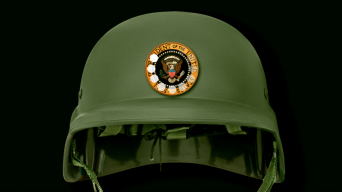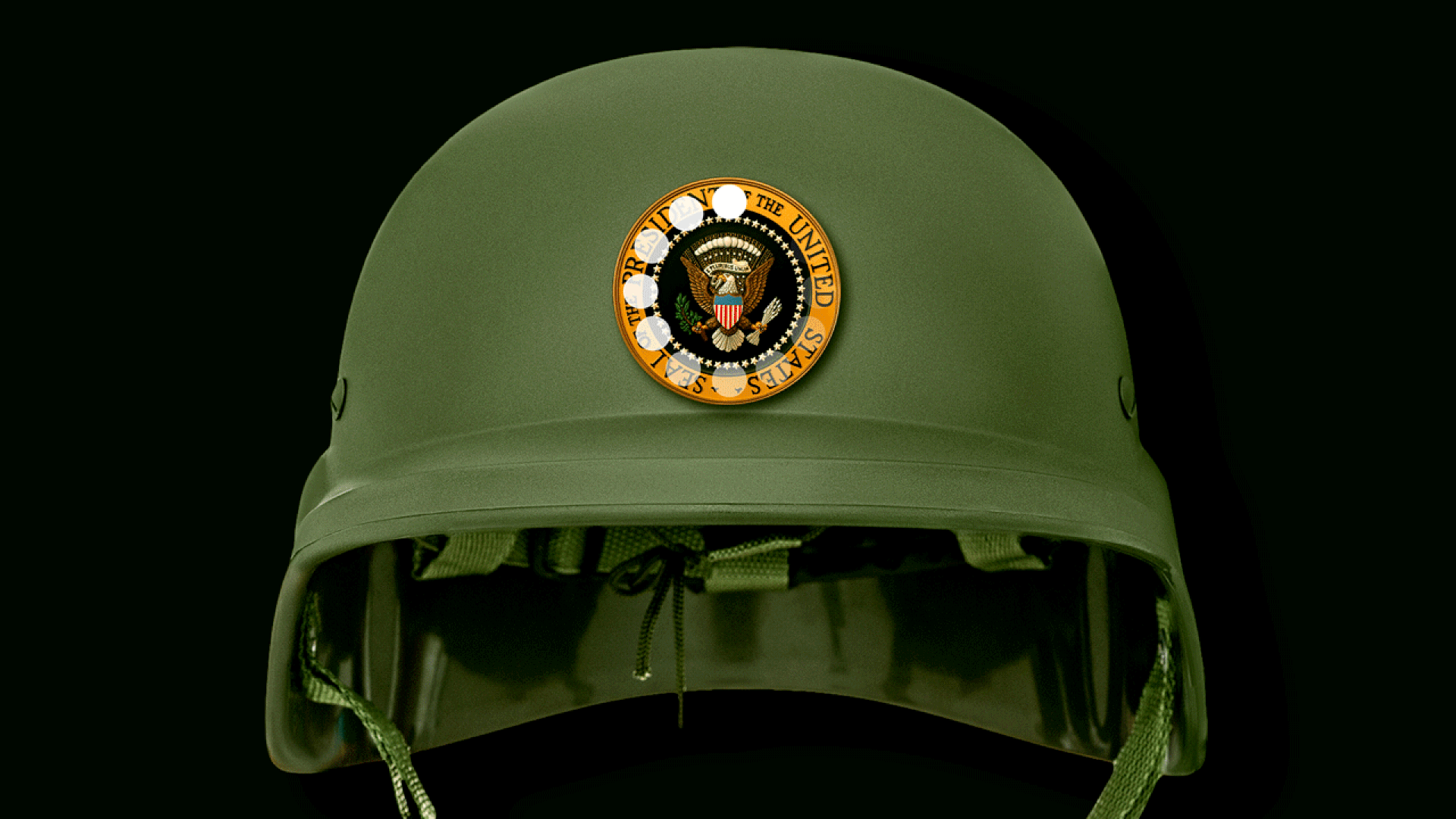Illustration: Annelise Capossela/Axios
Lawmakers spearheading the effort to repeal decades-old authorizations for the use of military force (AUMF) are already eyeing other ways to rein in executive power.
The big picture: The story of presidential power in the United States has been one of consistent expansion, and that growth has only accelerated in the 21st century. Now, some in Congress want to claw it back.
Driving the news: The Senate on Thursday took its first procedural votes to repeal the AUMFs green-lighting the 1991 Gulf War and 2002 Iraq War, voting 68-27 to advance the joint resolution.
- Lawmakers who support the resolution argue the AUMFs are outdated and have given presidents the power to use them far beyond their original intent.
- The 2002 AUMF, for instance, was cited as justification for several military actions during the Trump administration — most controversially, the 2020 killing of Iranian General Qassem Soleimani in Iraq.
- All Senate Democrats present and 19 Republicans voted for repeal — an unusually bipartisan vote in a chamber that rarely gets together on major bills.
What they're saying: "We should properly follow the Constitution and let the American people have their own voice in this process, through their elected representatives in Congress," Sen. Dick Durbin (D-Ill.) said in a floor speech on Thursday in support of repealing the AUMFs.
- The White House Office of Management and Budget said President Biden supports repeal, saying it would have "no impact on current U.S. military operations."
Yes, but: It's not yet clear whether House Speaker Kevin McCarthy (R-Calif.) will bring the bill up for a vote, even as it's supported by many of the right-wing hardliners he has empowered.
- Rep. Chip Roy (R-Texas), a conservative on the Rules Committee who co-sponsored the AUMF repeal in the House, signaled to Axios that he expects a floor vote.
- McCarthy's office did not respond to a request for comment.
What we're watching: Senators who led the charge to repeal the old AUMFs laid out other initiatives they're eyeing to reassert congressional power in the face of creeping executive authority.
- Sen. Rand Paul (R-Ky.) said repealing the Iraq AUMFs is "largely symbolic" and that he's considering proposing a bill to repeal the 2001 War on Terror AUMF as an amendment: "That's the one they all point to and it justifies 20 different wars around the world."
- Sen. Chris Murphy (D-Conn.) cited a bill he introduced with Sens. Mike Lee (R-Utah) and Bernie Sanders (I-Vt.) aimed at reclaiming congressional authority over war powers, national emergencies and arms exports — areas in which the executive can often act relatively unchecked.
- Sen. Chuck Grassley (R-Iowa) said Congress should revisit two mid-20th century laws expanding the president's ability to impose tariffs and declare national emergencies — though he declared, "It'll never happen."
Reality check: Grassley isn't alone in his pessimism. Although repealing the Iraq AUMFs is garnering broad bipartisan support, more sweeping measures would likely face an uphill battle.
- Murphy acknowledged uncertainty about whether his bill could get a vote, let alone pass. He called the AUMF repeal "very targeted" and "retrospective," while his is a more sweeping reform measure.
- Paul acknowledged his push to repeal the 2001 AUMF is far less popular: "I did it in the committee, I wasn't very successful. It was me vs. 20…. I might bring it forward just because I think we should have the debate."
- The Kentucky senator also pointed to Sen. Mark Warner's (D-Va.) bill empowering the president to ban TikTok as an example of Congress backsliding on the push to exert its authority.
The other side: One senator who voted against advancing AUMF repeal Thursday, Sen. John Cornyn (R-Texas), told Axios that the president "always seems to find Article II [constitutional] authority to do what they want to do."
- Lawmakers were outraged when Biden cited Article II, which allows the president to act in self-defense to protect military service-members, to authorize airstrikes on Iran-backed militias in Syria in 2021.
- "I just think this is not going to have any real impact, and I think there are other things we ought to be doing," Cornyn said.
Source: Read Full Article

